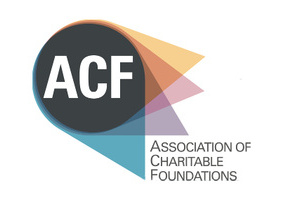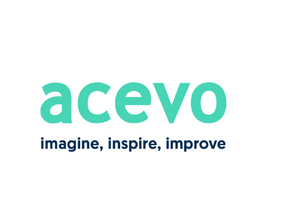Today civil society is tested like never before. We face four global fires burning fiercely, and all connected: the climate emergency, soaring inequality, conflict at a 25-year high, and record numbers of refugees fleeing their homes. With populism fanning all those flames.
In response, civil society is seeking to work at unprecedented scale and pace. Business as usual won’t cut it if we want to move from the last decade, dominated by protest and make this the decade of progress. Three steps are key – simultaneously taking on related challenges, staying innovative and supporting the grassroots organisations that work so effectively with and among communities.
How does civil society create change? Think of it as one of the fantastic electric cargo tricycles that have begun to give clapped-out old delivery vans a run for their money. The front wheel is the values that inspire and motivate us, keeping us on the straight and narrow despite the road’s bumps and dangers. The first of the two back wheels is people protesting and campaigning against what is wrong, seeking to win power and concessions. The second back wheel is people creating the living alternative, prefiguring how society could run differently. In today’s challenging times, steering that bike has never been tougher – or more important.
Grassroots initiatives
In the UK and beyond, grassroots organisations can speed us on our way. Community initiative Repowering uses rooftop solar panels on London’s estates to address injustice alongside the climate crisis. The ‘just transition’ – ensuring that workers in a changing economy are reskilled to find decent ways to earn a living – is in its DNA. Money from selling the generated energy to the national grid pays to train young people in everything from putting up more panels to discussing energy policy with their MP.
In estates notorious for deprivation, drugs and high rates of imprisonment, the organisation’s secret for success is the ‘matriarchy theory of organising’ – finding the women who know everyone on the estate and getting them interested in the project. They were the ones who pushed Repowering to offer an accredited, properly paid internship that would attract young people.
UNDP Yemen offers another inspiring example of locally-driven action tackling multiple challenges. Just 20km from a conflict frontline, UNDP helped young women come together to form a solar energy company. Today their panels are powering homes and businesses, cutting reliance on expensive and polluting diesel generators.
With Yemen racked by conflict and hunger and also near the bottom of global rankings on gender equality, here are women earning a living (and helping others save), gaining dignity and creating a low carbon future. It’s a systemic approach that can inspire us all – while up-ending our preconceptions.
Kudos to UNDP Yemen using its considerable resources to empower grassroots initiatives. Too often international organisations have crowded out the funds, attention and best staff in developing and conflict-affected countries.
Local and national organisations need more support
UN data shows that 85% of government humanitarian funding for NGOs in 2016 went to international charities, with 53% going to ten organisations. National and local NGOs received just 1.5%. The rhetoric is changing as big players commit to give humanitarian funding ‘as directly as possible’ to local and national players but the reality lags far behind.
International NGOs have to lead a reversal, making this the decade of national organisations – such as Basmeh & Zeitooneh, formed by Syrian refugees to provide relief and development services. Despite a proven record of success, the organisation has lurched from one funding crises to another.
Founder Fadi Hallisso says: “We’re trying to prepare people to rebuild Syria in the future, but we don’t know what we’ll be able to continue doing next month.”
Development academic and author Thanassis Cambanis sums up the challenge faced by Basmeh & Zeitooneh: “The group has done everything right — rising out of the community it serves, responding quickly to new local needs, delivering help with minimum funds wasted on costly overheads — yet it faces a worse funding shortfall than its bigger, more lumbering counterparts... when Basmeh & Zeitooneh staffers approached the United Nations for grants, they were told to pitch projects bigger than US$5m. If they proposed a US$5m project... they were told they didn’t have the capacity.” Now they have formed a coalition to shift power and funding to refugees worldwide.
Rethinking organisational models
International NGOs have enviable track records for fostering social change. Now they need to apply their same creativity to rethinking their own organisational model, adapting to new needs, technologies and imperatives.
We know the big institutions can change as they are doing it all the time. Once the biggest NGOs were plastering their logos over every action; now Greenpeace, for example, has supported the climate school strikers behind the scenes; you don’t see their banners, they don’t take the credit, they are just backing the young people transforming the climate debates.
Meanwhile Friends of the Earth is attracting people to their new Climate Action Groups, instead of their local Friends of the Earth groups. Such shifts need to happen faster if civil society is to get back on the front foot and drive forward a new international vision, consensus and reality.
That will mean connecting the issues, collaborating more, fostering national and grassroots groups – and helping to imagine a new international architecture. Riding this tricycle will be tough, but civil society is well used to rising to challenges as it drives change forward.
Harriet Lamb is chief executive of Ashden
She has recently written a book with Ben Jackson called From Anger to Action – Inside the Global Movements for Social Justice, Peace and a Sustainable Planet
Register for the book launch event, 2 June.
Related articles











